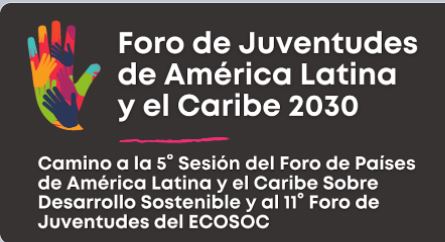
1st CARIBBEAN YOUTH FORUM (CYF) ONE CARIBBEAN: YOUTH, OWNERSHIP, CITIZENSHIP November 12th, 2018 Santo Domingo, Dominican Republic
Santo Domingo, Dominican Republic
As youth leaders and youth representatives of the Caribbean, we believe that integration and innovation are very important to regional development, so as to not only guarantee a good future for us but also for the next generations.
Therefore, through this medium, we intend to articulate mechanisms that can be implemented to improve the experience of students in Higher Education within the region.
This declaration contains three broad themes of interest that we believe can enable greater collaboration, integration and development as we strive to accomplish a “One Caribbean”.
ONE: TECHNOLOGY AND INNOVATION
A. Considering the financial burden associated with physical mobility within the region we recommend using technology as a means of reducing costs and increasing accessibility. For example:
1. The creation of a shared database where students from across the Caribbean region can access and contribute research material to increase accessibility, awareness and value of Caribbean scholarship.
2. The creation of a single digital space that allows access, promotion and collaboration among Caribbean youth.
3. Hosting virtual youth forums that would bring together youth from across the region to discuss and find solutions to regional issues that are relevant to development.
TWO: CLIMATE CHANGE AND SUSTAINABLE DEVELOPMENT
B. Considering the impact of climate change on regional development and access to education we propose:
4. Establishing a regional hardship grant or fund to provide aid to students from territories who would’ve been affected by natural disasters within the network.
5. Supporting student projects, research and training on sustainable development and climate change to enable greater collaboration and participation.
THREE: LEADERSHIP AND YOUTH INTEGRATION
C. Considering the lack of regional integration and the need to foster stronger youth leadership, along with improved regional youth initiatives we propose:
6. The promotion of double degree programmes and exchange programmes among member universities that will increase student mobility.
7. Organising regional workshops to foster knowledge sharing and collaboration on innovative projects in order to solve common regional issues, like that of; gender equality, crime and violence or other topics relevant to youth.
8. The provision of programmes that promote opportunities for students to learn another language spoken in the region.
9. Supporting initiatives and programmes that promote youth leadership and representation.
-THE END
